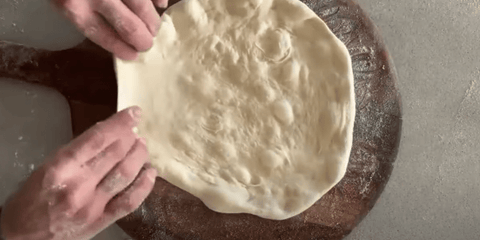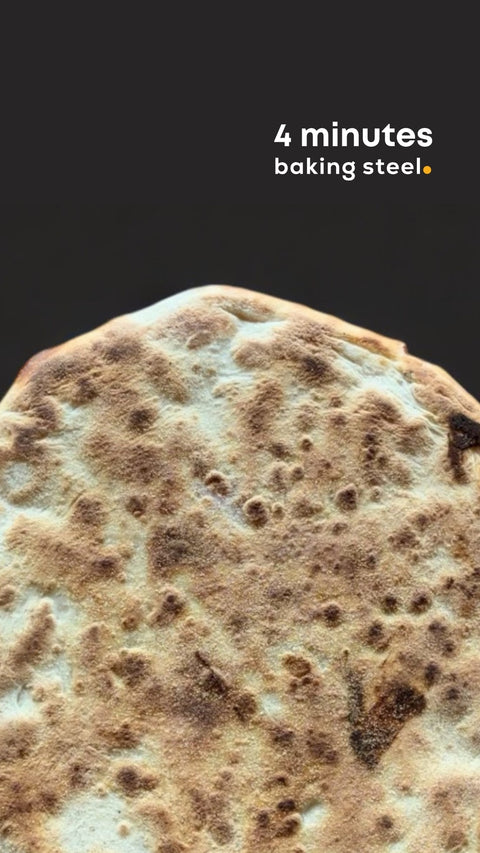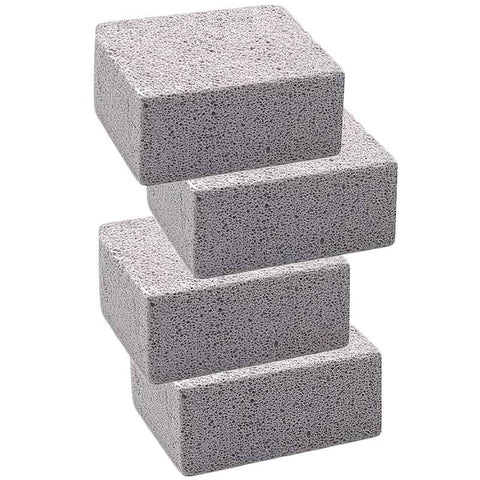When we think of the perfect pizza, images of a crispy crust with a tender, airy interior come to mind. But what’s the secret behind achieving this ideal balance?
The answer lies in the science of fermentation. By understanding and mastering the pizza dough fermentation process, you can enhance both flavor and texture, transforming your homemade or professional pizza into a culinary masterpiece. Discover the tools that will change your pizza game. Let's delve into the fascinating world of fermentation and uncover how it can elevate your pizza game.
The Science of Pizza Dough Fermentation
At its core, fermentation is a natural metabolic process where yeast converts sugars into carbon dioxide and alcohol. This process not only causes the dough to rise but also develops the complex flavors that make pizza so irresistible. Typically, the pizza dough fermentation process involves two stages: the initial rise (bulk fermentation) and the final proofing. Each stage plays a vital role in shaping the dough’s final characteristics.

Proofing, the final rise before baking, is essential for developing the dough's structure and texture. During proofing, the dough continues to ferment, allowing the yeast to produce more carbon dioxide, which gets trapped in the dough’s gluten network. This results in a light, airy crust once baked. Proper proofing also enhances the dough’s flavor, making it richer and more nuanced. Understanding the importance of proofing pizza dough ensures you achieve a balanced and well-textured crust. Get expert tips on proofing your dough.
Understanding Yeast Fermentation in Pizza Dough
Yeast is the driving force behind fermentation. The type of yeast, the amount used, and the fermentation time for pizza dough all influence the final product. Active dry yeast, instant yeast, and fresh yeast each have their own characteristics and fermentation rates.
Knowing how yeast fermentation in pizza dough works enables you to control the dough’s rise and flavor development precisely.
Benefits of Fermentation for Perfect Pizza
Fermentation offers numerous benefits for pizza dough. Firstly, it improves the dough’s extensibility, making it easier to stretch and shape without tearing. Additionally, fermentation enhances flavor through the production of organic acids and alcohol, which contribute to the dough’s complexity.
A well-fermented dough also results in a better crumb structure, giving you that perfect balance of chewiness and crispiness.
Easier Digestion
- Breakdown of Gluten: The fermentation process helps break down complex proteins like gluten, making the dough easier to digest for some people.
Fermentation Techniques for Optimal Pizza Crust
To achieve the perfect pizza crust, mastering various fermentation techniques is crucial. Cold fermentation, for instance, involves refrigerating the dough for an extended period, typically 24-72 hours. This slow fermentation allows for a more pronounced flavor and better texture.
Alternatively, room temperature (72 F) fermentation can be quicker but requires careful monitoring to prevent over-fermentation. Experimenting with these techniques can help you find the perfect method for your pizza dough. Learn advanced pizza making techniques.
Expert Tips for Rising Pizza Dough
Here are some expert pizza dough rising tips to get the best rise out of your dough:
1. Use the right amount of yeast
Too much yeast can cause the dough to rise too quickly, while too little can result in a dense crust. We love a micro dose of 1 gram per 500 grams of flour.
2. Control the temperature
Fermentation is temperature-sensitive. Cooler temperatures slow down fermentation, while warmer temperatures speed it up. We love to start the initial fermentation at room temperature 72F, and then continue to bulk ferment in the fridge for the rest of the time.
3. Be patient
Good things come to those who wait. Allowing the dough to ferment slowly will yield better results in terms of both flavor and texture. Our recommendation is to go a minimum of 24 hours. But think the real sweet spot is a full 72 hours.
The Secret to Perfect Pizza Dough
Understanding and mastering the fermentation science in pizza making is a game-changer. By paying attention to the fermentation process, you can significantly enhance the flavor and texture of your pizza dough.
Whether you’re experimenting with different fermentation techniques or perfecting your proofing skills, these insights will help you create a pizza masterpiece every time. Investing in Quality Baking Equipment
For those passionate about achieving the ultimate pizza crust, consider investing in high-quality baking equipment, such as a Baking Steel, which can provide consistent heat and superior results. Get the original Baking Steel for perfect pizzas.
A little patience and some quality equipment can go a long way. We hope you enjoy perfecting your homemade pizzas. Looking for more pizza tips? Check out Andris' newest pizza making class below.








